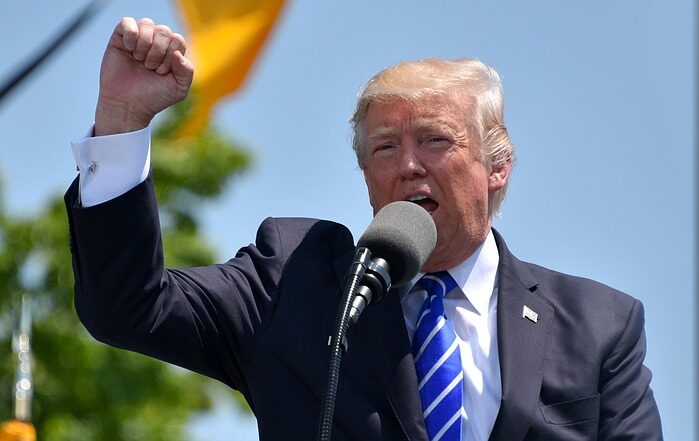
Former US President Donald Trump, in collaboration with his economic advisers, plans to thwart the burgeoning de-dollarisation movement within the BRICS alliance. Strategically aligning with his aspirations for the 2024 presidential elections, Trump perceives these endeavours as pivotal to his prospective policies.
A recent report by Bloomberg unveils the proactive stance of Trump’s administration, contemplating punitive actions to deter nations from veering away from the US dollar in bilateral trade. These potential measures encompass export controls, charges of currency manipulation, and tariffs, designed to impact both allies and adversaries alike. They serve as a retaliatory response from the United States to the escalating de-dollarisation initiatives.
The verbal dissent against the dollar’s dominion gained momentum in 2022, notably following US-led endeavours to impose stringent economic sanctions on Russia, a significant member of the Group of 20 nations. The reverberations of these sanctions rippled through global finance, highlighting the potential consequences of straying from the US currency.
Global Economic Implications
The Federal Reserve’s reluctance to decrease interest rates has contributed to the recent appreciation of the dollar, prompting overseas authorities to contemplate interventions to support their own currencies. US sanctions on developing nations have further accelerated efforts to diversify away from the dollar, with the BRICS alliance playing a pivotal role in facilitating alternative trade avenues.
In response to US sanctions, Venezuela’s state-run oil company, PDVSA, announced intentions to settle crude oil trade using digital currencies, indicating a shift from conventional payment channels. This move aligns with BRICS’s principles of promoting cross-border transactions in local currencies, posing a significant challenge to the dollar’s dominance in the global energy market.
Despite encountering initial obstacles, BRICS continues to attract interest from potential members, with 34 countries reportedly submitting applications for membership.
Although recent setbacks, such as Argentina’s rejection of an invitation and Saudi Arabia’s deliberation on joining the alliance, have slowed expansion efforts, the forthcoming 2024 BRICS summit in Kazan, Russia, is anticipated to serve as a platform for announcing any alterations to the group’s composition.

